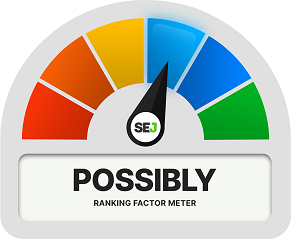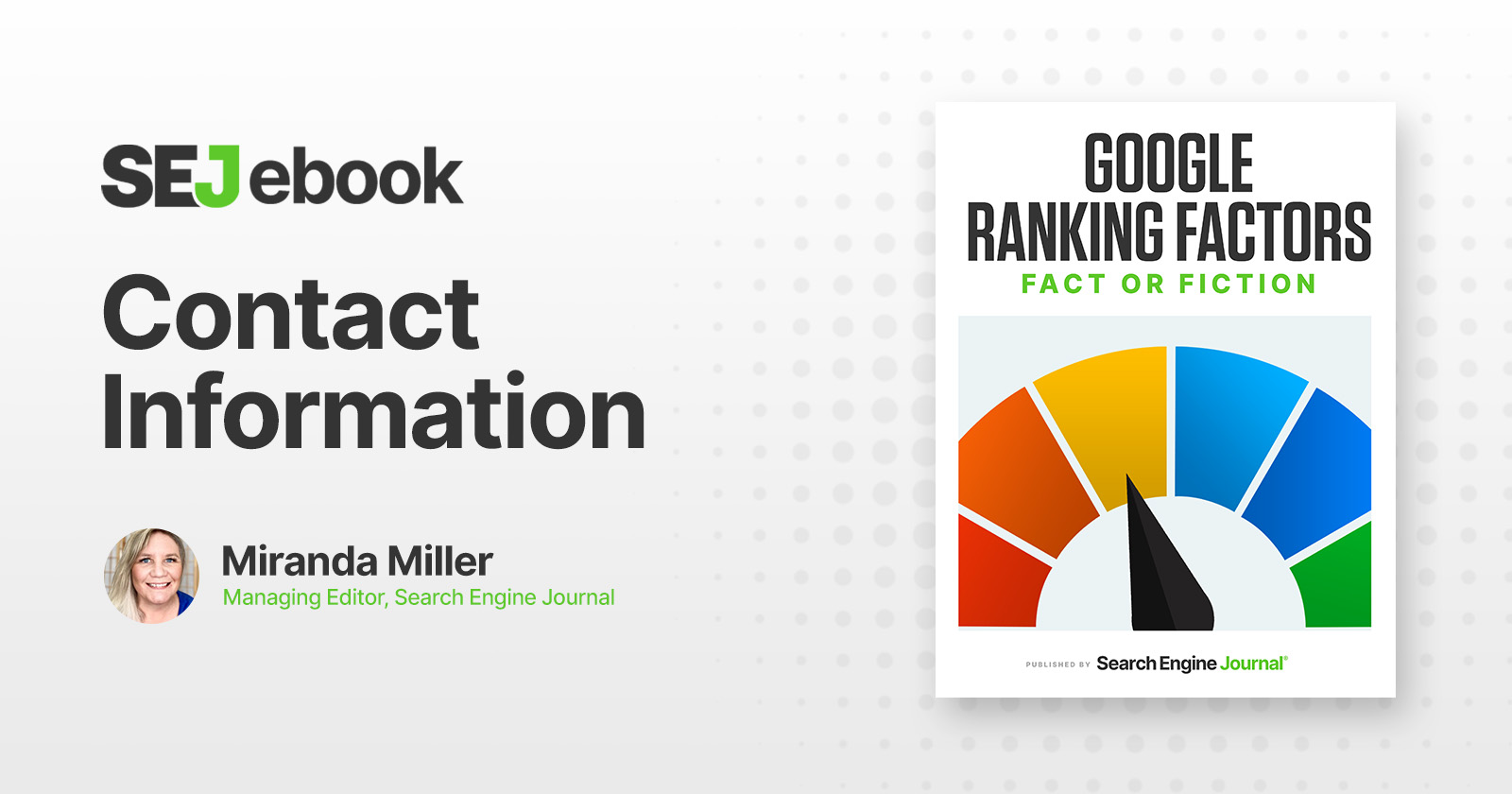Giving customers and prospects a way to reach you by phone or email is just good business.
It enables people to get in touch and ask questions, raise any concerns they may have, place an order, and more.
With that said, there may be legitimate reasons a person or organization chooses not to publish their contact information.
The question is, does contact information – or a lack thereof – affect your Google search rankings?
The Claim: Contact Information Is A Google Ranking Factor
There are two different considerations here:
- Contact information on your GMB listing (which replaced Google Places for Business and Google+ Pages, which is why you’ll see reference to Place pages below).
- The contact information on your website.
The Evidence For Contact Information As A Ranking Factor
Having your contact information – specifically your business name, address, and phone number – appear in various places online is known as a citation.
We know that citations are a local search ranking factor and have been for well over a decade (likely even prior to Google launching its own Places pages in 2009).
David Mihm’s fifth Local Search Ranking Factors survey report, published in 2012, offers a snapshot of the conventional wisdom around contact information as a local ranking factor at that time.
SEO professional Nyagoslav Zhekov (now Director of Local Search at WhiteSpark) is cited as saying the following on the importance of having a local area code on your Place page:
“While it is a rather minor ranking factor, it can significantly affect your click-to-call rate, and general conversion, as when people search for local businesses, they’d prefer to find exactly this.”
James Svoboda, partner at WebRanking, said:
“Place page factors of Business Title, Categories, Phone number and Address are of high importance for establishing an accurate and trusted profile that will rank well in your local market for related keywords.”
You can learn more about citations as a ranking factor here.
It gets a little trickier when we try to determine whether including contact information on your website is a ranking factor.
There’s some evidence that it is.
The Google Quality Raters Guidelines (pg 15) state that:
“The types and amount of contact information needed depend on the type of website. Contact information and customer service information are extremely important for websites that handle money, such as stores, banks, credit card companies, etc. Users need a way to ask questions or get help when a problem occurs.”
Now, that doesn’t mean it’s part of the algorithm. These are the guidelines given to human quality raters who have no ability to influence search rankings.
But it does tell us that Google considers contact information an important part of the searcher experience, particularly when it comes to Your Money Your Life (YMYL) webpages.
Page 35 reiterates the importance of contact information in evaluating a webpage’s trustworthiness when YMYL is in play:
“Important: For YMYL pages and other pages that require a high level of user trust, an unsatisfying amount of any of the following is a reason to give a page a Low quality rating: customer service information, contact information, information about who is responsible for the website or information about who created the content.”
And again on Page 42:
“…we expect most websites to have some information about who (e.g., what individual, company, business, foundation, etc.) is responsible for the website and who created the MC, as well as some contact information, unless there is a good reason for anonymity.”
The Evidence Against Contact Information As A Ranking Factor
In a 2016 Google Webmaster Central hangout, John Mueller was asked, “Can missing contact information on a news magazine cause worse rankings in Google News or Google news snippet in the organic search?
“I don’t know about Google News, so I can’t comment on that. With regards to normal web search, I don’t think we look at things like contact information on a webpage. So that’s probably not something that we’d focus on for web search rankings.”
He added that personally, he appreciates when a website displays contact information as it enables Google to get in touch directly if they notice a major site error such as noindex applied sitewide.
He also noted that particularly for news sites, not giving visitors a way to contact the business seems like a bad user experience.
Contact Information As A Ranking Factor: Our Verdict

Google definitely uses contact information in local listings (citations) as a local ranking factor.
And although Mueller expressed his doubt that contact information on a website was used in web (organic) search rankings, that was in 2016.
The themes of E-A-T and higher standards for YMYL were prominent in the 2015 release of the Quality Raters Guidelines.
I had read and written about a previously leaked edition of the guidelines in 2011, and the focus on YMYL in the 2015 version seems a refinement of the webpage rating scale Google used in that earlier version. It asked raters to assign “exactly one” of the following ratings:
- Vital.
- Useful.
- Relevant.
- Slightly Relevant.
- Off-Topic or Useless.
- Unratable.
It seems that by 2015, Google’s approach to website quality had matured to the extent that it recognized the need to evaluate different types of sites in different ways.
Google’s Danny Sullivan suggested in 2018 that the key to doing better in broad core algorithm updates was making good use of the Quality Raters Guidelines.
For all of these reasons, the evidence points to contact information on your website as a ranking factor for queries that have the potential to impact a person’s health or livelihood.
Google’s search ranking systems are made up of many different algorithms. Sites that publish important, potentially impactful information are held to a higher standard and that includes enabling readers/customers to contact them.
Featured Image: Paulo Bobita/SearchEngineJournal





![AI Overviews: We Reverse-Engineered Them So You Don't Have To [+ What You Need To Do Next]](https://www.searchenginejournal.com/wp-content/uploads/2025/04/sidebar1x-455.png)